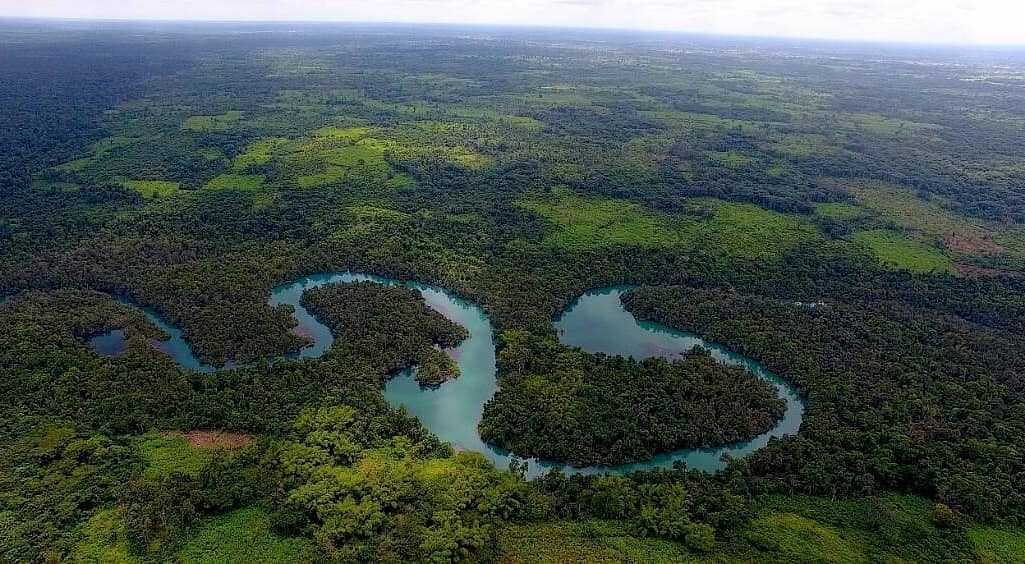Miraculous Escape: Abducted Brothers Flee to Safety as Exhausted Kidnappers Sleep Through N22 Million Ransom Guard Duty
A terrifying kidnapping ordeal has ended in a stunning, miraculous escape. Two brothers in Edo State fled their captors’ den after the armed guards fell into a deep sleep. The victims were identified as Isaac and Victor Olayere. Their escape, however, casts a stark light on the pervasive insecurity gripping the region. But it also provides a rare moment of relief for a community tormented by fear.
A N22 Million Demand
The nightmare for the Olayere family began on November 8, 2025. Isaac and Victor were traveling along the notoriously dangerous Adughe–Imoga Road in Akoko Edo Local Government Area when gunmen ambushed them. The assailants used tactics that are all too common in the area. They swiftly overpowered the brothers and marched them deep into the surrounding forest. Subsequently, news of the abduction plunged the Uma/Imoga community into a state of confusion and profound panic.
The situation grew more desperate when the kidnappers made contact with the family. They issued a chilling demand: N22 million for the safe return of the two young men. The sum was an astronomical figure for the rural community. Consequently, it left the family and local leaders scrambling. They immediately initiated frantic efforts to negotiate and raise the funds.

A Daring Escape
While the family grappled with the ransom demand, the brothers were enduring captivity. Then, in a remarkable turn of events, their chance for freedom arrived. Sources described the moment as purely providential. The captors, reportedly exhausted, “suddenly went into a deep slumber,” according to local accounts. The armed men tasked with guarding the N22 million prize had, incredibly, fallen asleep on duty.
Seizing the life-or-death moment, Isaac and Victor made their daring and silent escape. They slipped away from the encampment and fled into the wilderness. Their perilous journey to safety was fraught with uncertainty. They navigated the unfamiliar, dense bush, driven only by adrenaline and the terror of recapture.
The first sign of their freedom came not from a police raid, but from a desperate phone call. The brothers managed to find help. They then contacted their father using an unknown phone number, informing him that they were free. They were subsequently discovered by vigilantes from Adughe, a neighboring community in Kogi State. A crucial cultural link aided the discovery. Specifically, the Adughe vigilantes share the Okpameri language with the victims’ Uma/Imoga community. This link facilitated communication and trust.
The vigilantes immediately alerted residents in Imoga. As a result, a team of local youths mobilized to comb the forest. They successfully located the kidnappers’ hideout. However, by the time they arrived, the captors had awakened and fled, leaving behind an empty camp.
Community Leader Pleads for Security
The Okpahi of Imoga Kingdom, Oba Patrick Obajoye, officially confirmed the incident. He spoke to reporters in a telephone interview on Monday. The traditional ruler detailed the community’s response. “I swiftly reported the incident to the Ibillo Police Station with the hope that the rescue effort would lead to the release of the brothers,” he said.
Furthermore, he lamented that his kingdom has become a volatile hotspot for kidnapping. He pointed to Imoga’s strategic and vulnerable position. It is a border town connecting Edo, Ondo, and Kogi states. “Imoga is the largest village in Akoko Edo in terms of landmass, and many herders have entered the area in large numbers,” Oba Obajoye explained. “It is also a key link between Edo State and the northern part of the country.” Therefore, the monarch made an urgent plea to the government. He insisted that the area desperately needs an established police post. This post could patrol the community and restore a sense of safety to its besieged residents.
A Region Under Siege
The Olayere brothers’ abduction is not an isolated incident. Instead, it is a symptom of a deepening security crisis in the Akoko Edo Local Government Area. The Adughe–Imoga Road, along with the connecting Igarra–Ibillo highway, has become infamous for such attacks. In May 2025, for instance, hundreds of youths blockaded the Auchi-Igarra-Ibillo road in a massive protest. They decried the dilapidated state of the roads. Residents claim the poor roads force vehicles to slow to a crawl, making them easy targets for kidnap-for-ransom gangs.
Protesters at the time lamented that abductions had become a “daily occurrence.” This crisis has continued unabated. Just last month, in October 2025, a retired headmaster, Eliaser Olorunloju, was abducted along the Igarra-Uneme-Nekhua–Ibillo road. His captors demanded N70 million. That incident was reportedly the fifth such kidnapping on the exact same spot. Weeks later, police operatives successfully foiled another kidnap attempt on the Igarra–Ibillo highway, rescuing traders who were returning from a local market.
 Edo State Governor, Senator Monday Okpebholo, recently pledged to tackle insecurity and fix bad roads, two issues residents say are deeply connected. (Image: governor-monday-okpebholo.jpg)
Edo State Governor, Senator Monday Okpebholo, recently pledged to tackle insecurity and fix bad roads, two issues residents say are deeply connected. (Image: governor-monday-okpebholo.jpg)The persistent danger has not gone unnoticed by the state government. Just days ago, on November 9, 2025, Governor Monday Okpebholo addressed the twin issues of infrastructure and security. He spoke during a thanksgiving service marking his first year in office. Speaking at the Immaculate Conception Cathedral in Auchi, a diocese that has itself seen its priests recently kidnapped, the governor vowed to “drive out criminal elements.”
He identified fixing bad roads and tackling insecurity as his administration’s most pressing challenges. “There is never a day we are not concerned about the insecurity in our land,” Governor Okpebholo stated. “We are doing everything possible to bring it to an end.” While the state has invested in security vehicles and equipment, the Olayere brothers’ abduction serves as a painful reminder that the problem persists. Their fortunate escape, reliant on the negligence of their captors rather than a state-led rescue, highlights the urgent, ongoing plea of communities like Imoga for a tangible and permanent security presence to reclaim their land from the grip of fear.

